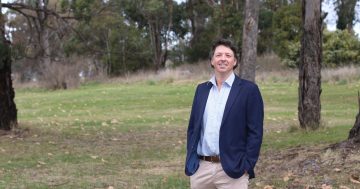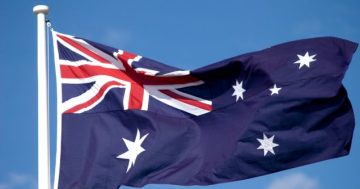Tawar Razaghi and Kate Burke* say a new report finds Australians are upbeat about property but are stressed about their personal finances.
 Confidence in property has almost returned to peak market levels, with the results of two new consumer sentiment surveys giving an insight into what may be in store for 2020.
Confidence in property has almost returned to peak market levels, with the results of two new consumer sentiment surveys giving an insight into what may be in store for 2020.
According to comparison website Canstar’s Consumer Pulse Report 2019, released at the end of last month, 67 per cent of people expect prices to remain stable or grow at a steady pace — up from 58 per cent last year.
“The expectation that people have has returned to 2017 levels, and if you remember 2017, it was a pretty good market, so people are thinking the same way now,” said Canstar Group Executive of Financial Services, Steve Mickenbecker.
“We are bullish about property prices over the coming 12 months.”
Despite record-low interest rates, Australians are still concerned about mortgage interest rate movements, with 7 per cent citing it as their biggest financial concern.
However, this was down from 9 per cent last year.
The national average owner-occupier is paying 3.88 per cent in interest.
However, those in Queensland are getting the best deal with an average rate of 3.83 per cent.
Meanwhile, those in Western Australia and South Australia have the highest average rate at 4 per cent.
“There are over 330 owner-occupier home loans on Canstar’s database that are below 3 per cent, yet everyone — no matter what State you’re in — is paying way above that,” said Canstar’s Editor-at-Large, Effie Zahos, noting people needed to do their research and make sure they were getting the best deal.
It comes as comparison website Finder released its new live Consumer Sentiment Tracker, which surveys about 1,000 Australians every month on a range of questions covering wealth, economic confidence, the environment and happiness.
The survey found Australians were upbeat about property with more than half (57 per cent) of those surveyed believing now was a good time to buy, despite a lot of fear for the broader economy.
Exactly half of the population thought there was a likelihood of a recession in the next 12 months.
Only 9 per cent of economists agreed.
Despite being confident about property values rising next year, more than half of Australians (55 per cent) were somewhat stressed about their current financial situation, and almost a fifth (19 per cent) were extremely stressed.
Both surveys found Australians, on average, have about $25,000 in cash savings but Finder Insights Manager, Graham Cook said the top end of town skewed those figures.
However, almost 40 per cent of Australians had less than $500 in cash savings.
When broken down by different categories, men, city dwellers and baby boomers all had more savings than the national average and their respective counterparts, according to Finder.
Men saved $35,823 compared with $20,410 for women, and baby boomers saved $42,632 compared with Gen X saving $32,611 and Gen Y saving $20,499.
Meanwhile, half of all Australians were somewhat concerned about their personal carbon footprint and more than a third were not concerned at all.
Most property owners were concerned about the environment to some degree, but those with three or more properties were far less concerned.
Women (57 per cent) were also more concerned than men (43 per cent).
In terms of happiness, the survey found that 84 per cent of homeowners were happy compared with 70 per cent of renters.
Broken down by generation, baby boomers came out on top, once again.
“Baby boomers are the happiest … maybe it’s because they own all the houses,” Mr Cooke said in jest.
Interestingly, more than 50 per cent of young Australians under 30 are living with their parents, but the general consensus is that they should flee the nest by 34, according to Canstar’s survey.
“The bank of mum and dad helps [younger Australians] with everything basically, a holiday, a new car, their education and now they want us to help them on to the property ladder,” Ms Zahos said.
“They’re staying at home until 34; they believe 34 is the age it’s okay to stay at home until.”
However, the report also found that property was the big-ticket item millennials were likely to save for in 2020.
A third of 25 to 39-year-olds were saving for a house, 13 per cent were saving for living costs, and 12 per cent were saving for an international holiday.
The largest cohort saving for a big trip was the silent generation, with a third of 74-year-olds or older putting money away for travel, closely followed by about a fifth of boomers.
* Tawar Razaghi is a journalist for Domain. She tweets at @TawarRazaghi. Kate Burke is a reporter for Domain. She tweets at @kateburke
This article first appeared at www.domain.com.au/news











